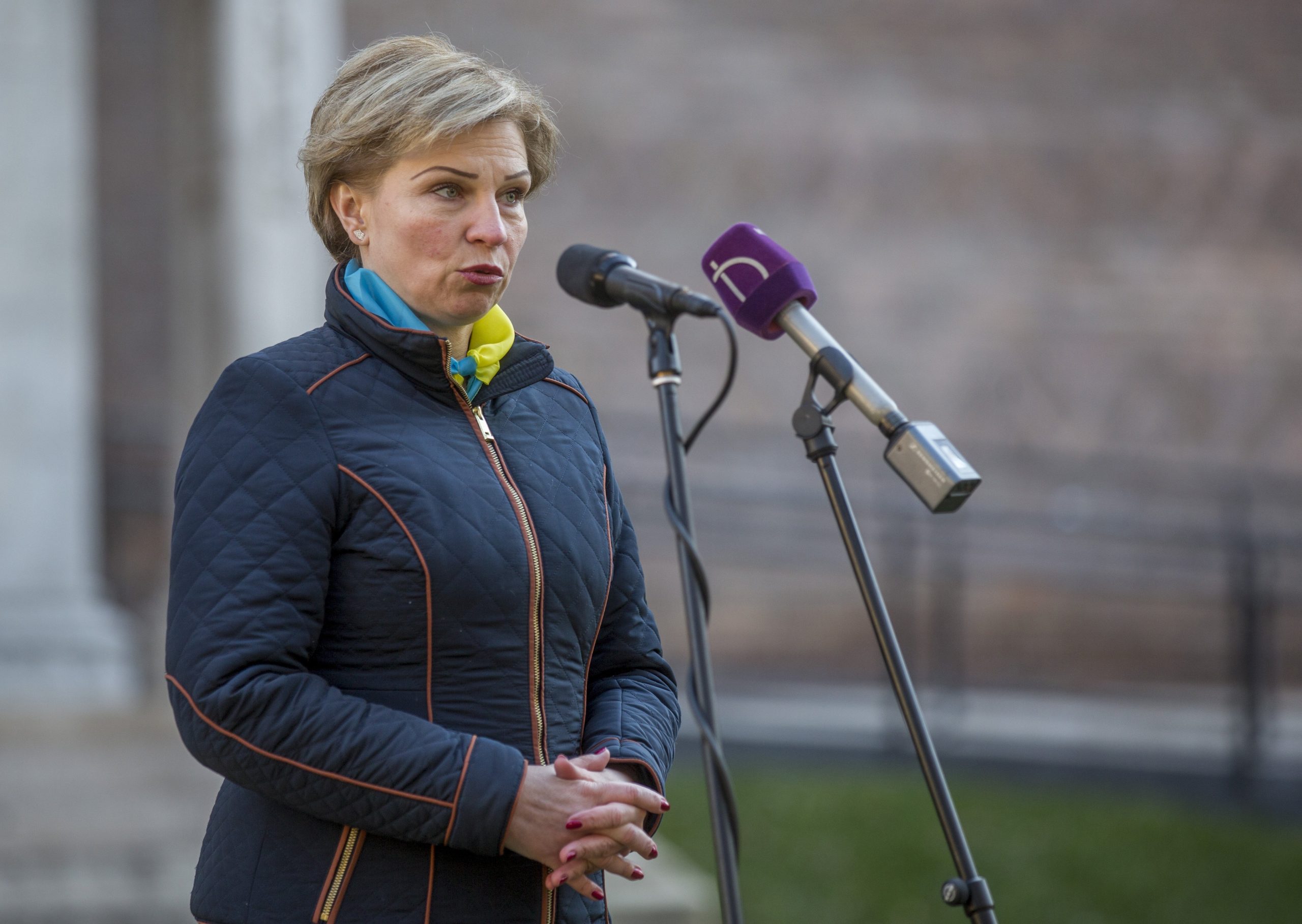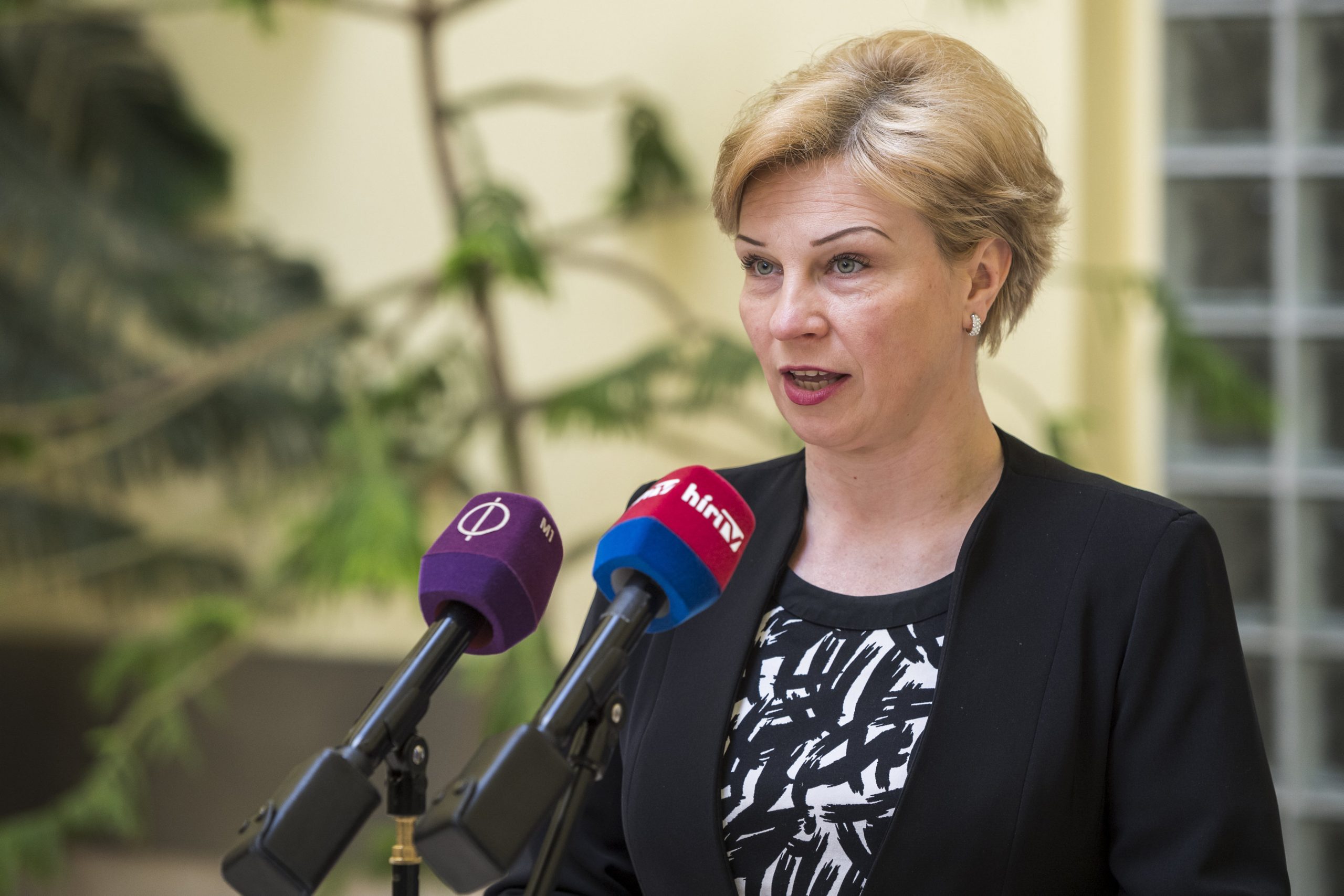
Lyubov Nepop argued that greater support from the West and from the Hungarian government is crucial, because if Putin defeats Ukraine, he will go on because he wants to restore the Soviet sphere of influence.Continue reading

“In 1552, a huge Turkish army of at least 40,000 men arrived to the castle of Eger, which was defended by a handful of defenders – barely 2,000 men under Captain István Dobó. The Hungarian garrison withstood the repeated siege, and the Turkish army, having suffered huge losses, withdrew from the castle after 38 days. It was the first time in the 16th century that a fortress of strategic importance, defending the Hungarian frontier, was able to resist conquest. For the whole world today, this fortress is Ukraine,” said the Ukrainian ambassador to Hungary in an interview with 444.hu. According to Lyubov Nepop, Ukraine is defending not only its right to exist, but also the whole of Europe. Talking about Ukraine’s request to the Hungarian government, the ambassador said these are no different from those they are making to other countries.
Every piece of news about the deaths of our soldiers, the bombings by the Russians, and the gunning down of civilians, causes unbearable pain- these are tragedies beyond comprehension. Therefore, when I ask for help here [in Hungary] – to give us weapons, protective equipment, to support the airspace closure over Ukraine – I do it with the feeling that the yes and no answers I get will decide whether or not I succeed in saving someone’s life in my country,” said Ukraine’s ambassador to Budapest in an interview with news site 444.hu.
Lyubov Nepop thanked Hungary for joining the initiative to grant EU candidate status to Ukraine under a fast-track procedure. “Ukraine is now defending, at the cost of its own lives, not only its right to exist, its right to its own state, but also European values and the whole of Europe from being targeted by Russian aggression,” she said.
The ambassador noted that Géza Gárdonyi’s novel The Stars of Eger is read not only in Hungary, but also in Ukraine. “In the shadow of the threatening Turkish conquest, the victory of Eger had great significance.
In 1552, a huge Turkish army of at least 40,000 men arrived under the castle of Eger, which was defended by a handful of defenders – barely 2,000 men under Captain István Dobó. The Hungarian garrison withstood the repeated siege, and the Turkish army, having suffered huge losses, withdrew from the castle after 38 days,”
she said, adding: “It was the first time in the 16th century that a fortress of strategic importance, defending the Hungarian frontier, was able to resist conquest.”
For the whole world today, this fortress is Ukraine, and it would be important for everyone to know that Ukrainian heroes were able to protect us and future generations from Russian conquerors. […] It is time to see Ukrainians as the defenders of the European fortress, as the defenders of Eger once were, who have every chance to hold out, and we together have every chance to win.”
Nepop also talked about international assistance to Ukraine, and stressed that their requests to the Hungarian government are no different from those they are making to other countries.
We are not asking for the Hungarian army or the army of any other NATO member state to fight for us. But we do ask that they help us with weapons, with protective equipment, with everything we need to stand up to the Russian army on the battlefield.”
“And we are asking NATO to close the airspace over Ukraine, to give us aircraft and air defense equipment,” she continued. “The lives of our citizens depend on it. The lives of peaceful citizens. Our children.”
Asked whether she considers the Hungarian government’s goal of ensuring that Hungarian citizens do not have to pay the price of the war to be realistic, the ambassador replied:
I think that at some point we have to face the truth. The Third World War has essentially already broken out. Today the fights are taking place in Ukraine. Our common task is to stop it from spreading from there to Europe. To do this, Ukraine must be supported. So the question is not whether to pay the price, but what price to pay.”
Featured photo by Márton Mónus/MTI